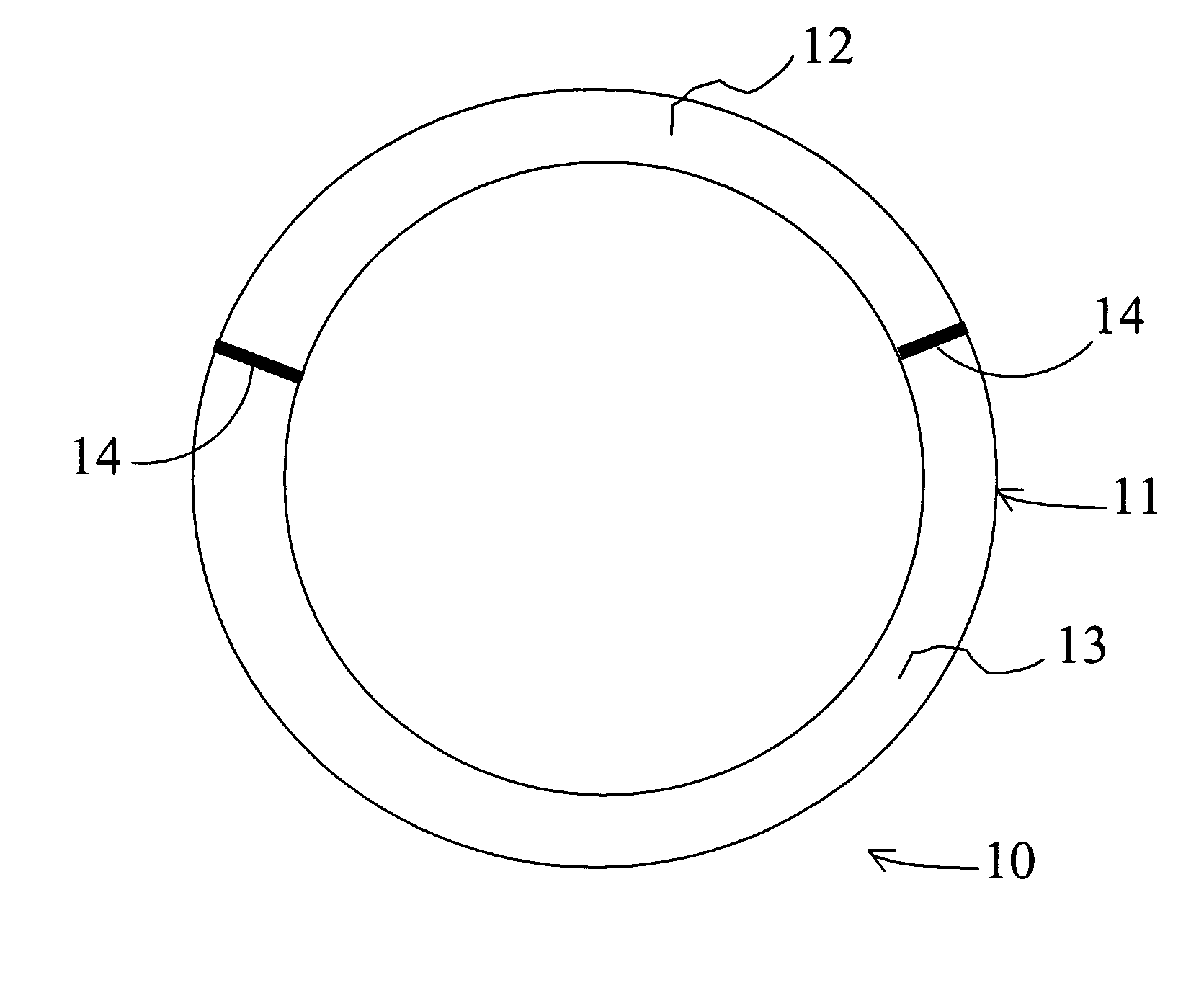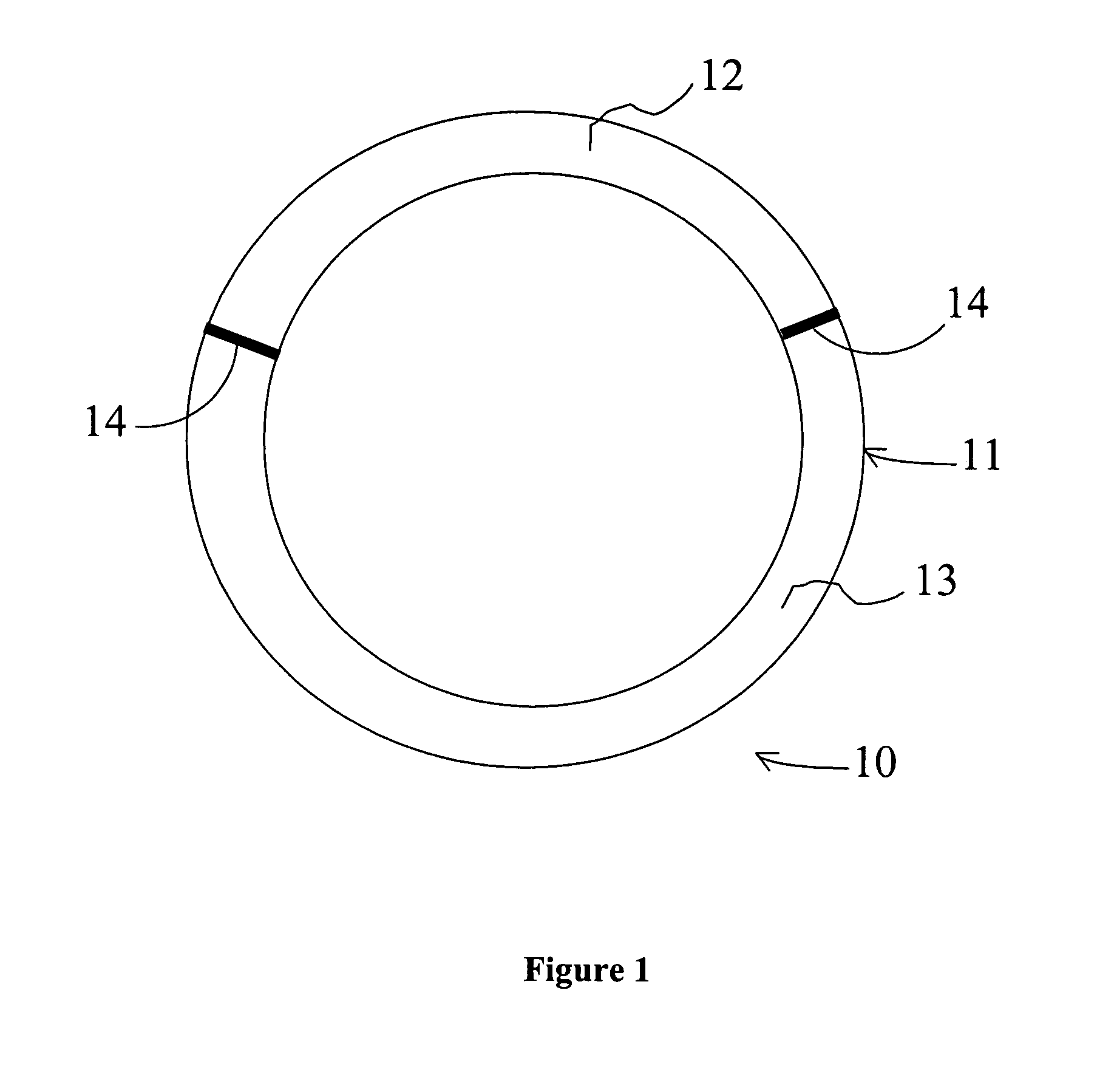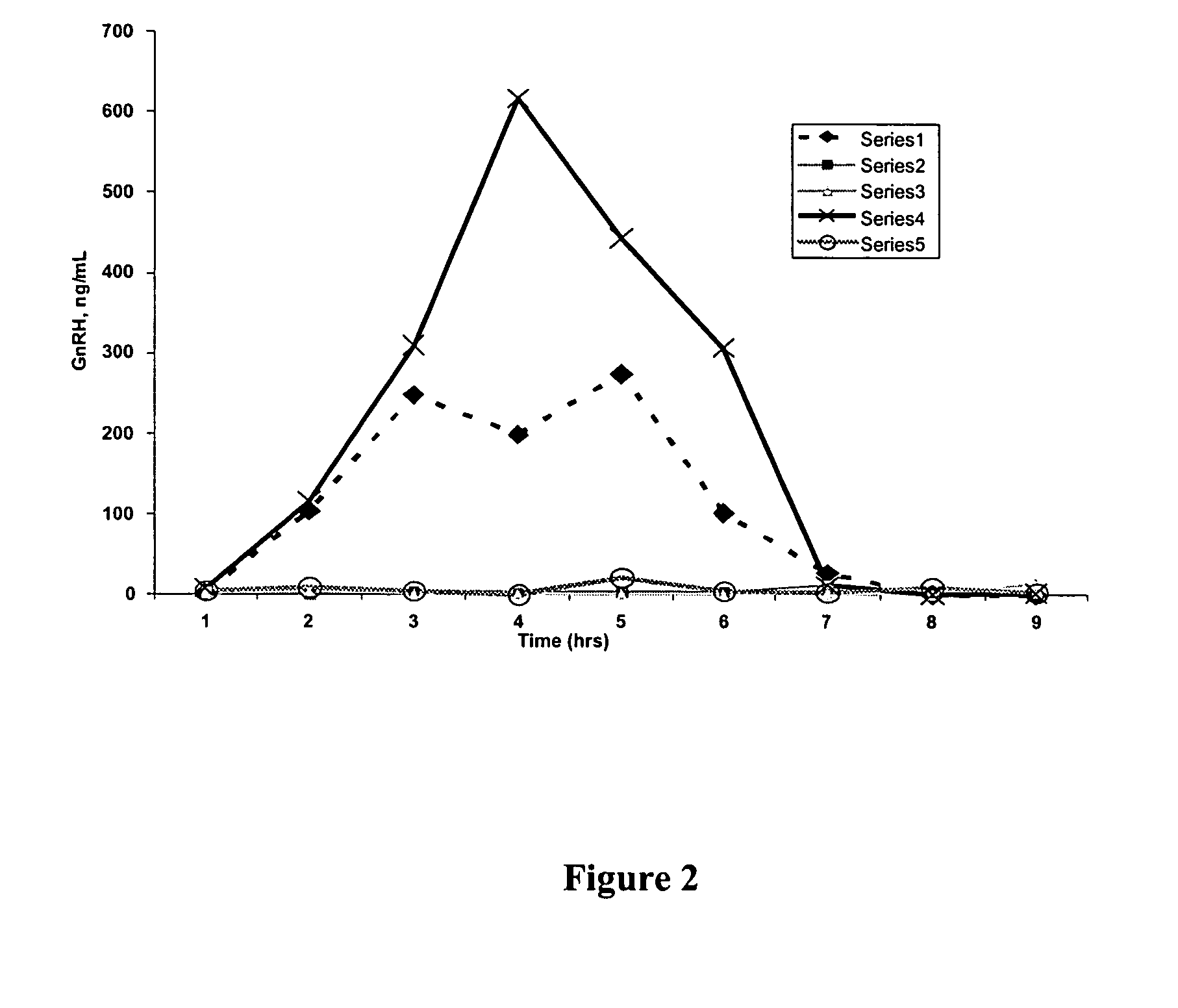Methods and devices for the sustained release of multiple drugs
a technology of multiple drugs and circulating drug levels, applied in the field of drug delivery devices, can solve the problems of slowing down, difficult to maintain constant and consistent release, and high variability in circulating drug levels during the course of treatment, and achieve the effect of less expensive and easier production
- Summary
- Abstract
- Description
- Claims
- Application Information
AI Technical Summary
Benefits of technology
Problems solved by technology
Method used
Image
Examples
example 1
Preparation of a Vaginal Ring for Controlled Release of Progesterone, Estradiol and Gonadotropin Releasing Hormone (GnRH)
[0136] The intravaginal drug delivery device illustrated in FIG. 1 was prepared using poly(ethyl-co-vinyl acetate) (EVA) manufactured by Aldrich Chemical Co. (Cat. No. 34,050-2; Lot No. 07322DR). 630 (milligrams) mg of progesterone (Sigma Corp.; Cat. No. P-3972) or 2.8 mg of estradiol (Sigma Corp.; Cat. no. E-1072) were each dissolved separately in approximately 5 mL of dichloromethane (Fluka Chem. Co.; Cat. No. 66740; Lot No. 404915 / 1 62800) in separate scintillation vials. Next, polymeric mixtures were prepared by adding 1400 mg of EVA to the progesterone solution and 1800 mg of EVA to the estradiol solution, and mixing the EVA / drug compositions using a rotary shaker. The resulting mixtures were then solvent cast in dry ice using ethanol as the solvent (Pharmco; Cat. No. 111 USP 200 CSGL; Lot No. M8241). The solvent was allowed to evaporate overnight, and the d...
example 2
Intravaginal Administration of GnRH to Rhesus Monkeys
[0140] Compositions comprising GnRH were prepared using an over-the-counter hydrogel sold under the name Replens® (Columbia Laboratories, Inc., Livingston, N.J.). Compositions comprising GnRH were prepared by mixing 10 mg of GnRH with 2 g of Replens®. 2 g of the GnRH / Replens® mixture was then placed in the vaginal tracts of five Rhesus monkeys and allowed to remain there for 9 hours. Blood samples were obtained at one hour intervals for the full 9 hour course. The blood samples had the serum separated from the clot by centrifugation and samples were subjected to an RIA assay to measure GNRH. GnRh levels were determined based on a traditional double antibody RIA for GnRH (this protocol can be modified to also measure GNRH agonists, or GnRH antagonists by varying the antibody).
[0141] Briefly, anti-GnRH was added to standard and test samples and incubated at room temperature for 20-24 hours. The 1-125 labeled GnRH were diluted to 2...
example 3
Simultaneous Release of Estradiol, Progesterone, GNRH from an EVA Ring
[0143] Intravaginal drug delivery devices comprising estradiol, progesterone, and GnRH were prepared as described in Example 1. Estradiol, progesterone and GNRH rings were placed in 100 ml of release media (70:30 PBS:EtOH, pH=6) at 37° C. on as rotary shaker (100 RPM). At the the indicated time points media was collected and measured by HPLC on an Agilent 1100 Series HPLC (Agilent, Forest City, Calif.). Estradiol and progesterone were detected by UV at 230 nm while GnRH was measured at 215 nm. Results were calculated based on the area under the curve compared to a 5 point calibration curve. Results were expressed as the cumulative release in μg released over the course of the experiment.
[0144]FIG. 3 shows the in vitro zero order kinetic release of estradiol and progesterone over a 21 -day period. FIG. 4 shows the in vitro zero order kinetic release of GnRH during this same period.
[0145] This example demonstrate...
PUM
| Property | Measurement | Unit |
|---|---|---|
| Diameter | aaaaa | aaaaa |
| Diameter | aaaaa | aaaaa |
| Diameter | aaaaa | aaaaa |
Abstract
Description
Claims
Application Information
 Login to View More
Login to View More - R&D
- Intellectual Property
- Life Sciences
- Materials
- Tech Scout
- Unparalleled Data Quality
- Higher Quality Content
- 60% Fewer Hallucinations
Browse by: Latest US Patents, China's latest patents, Technical Efficacy Thesaurus, Application Domain, Technology Topic, Popular Technical Reports.
© 2025 PatSnap. All rights reserved.Legal|Privacy policy|Modern Slavery Act Transparency Statement|Sitemap|About US| Contact US: help@patsnap.com



